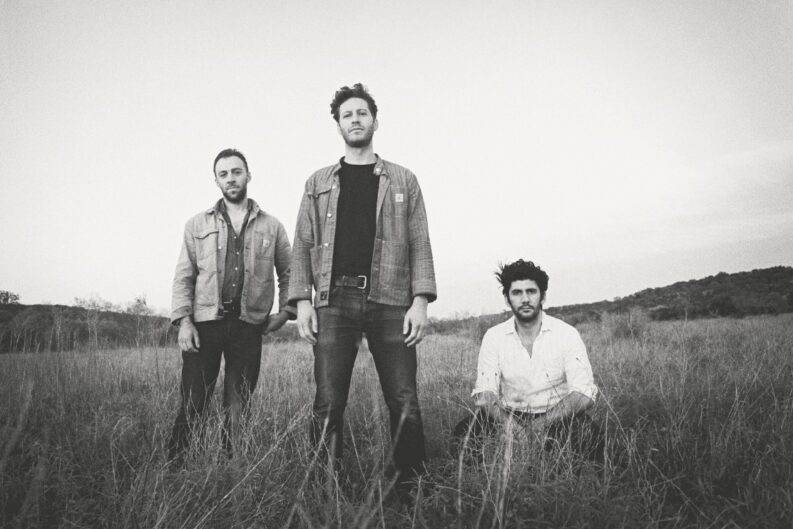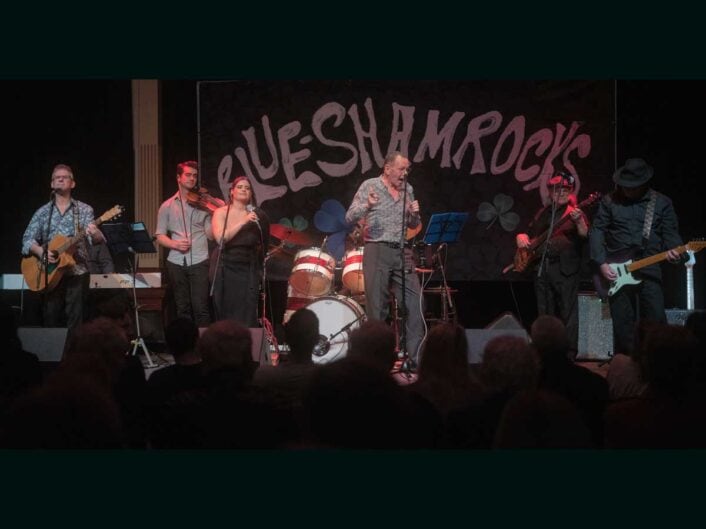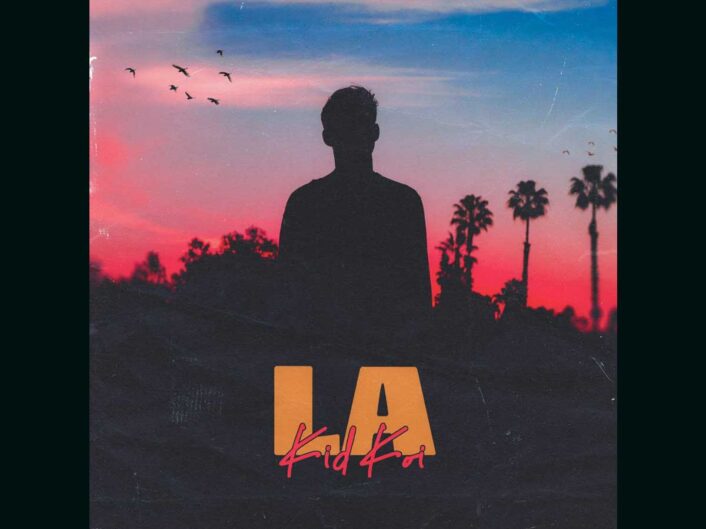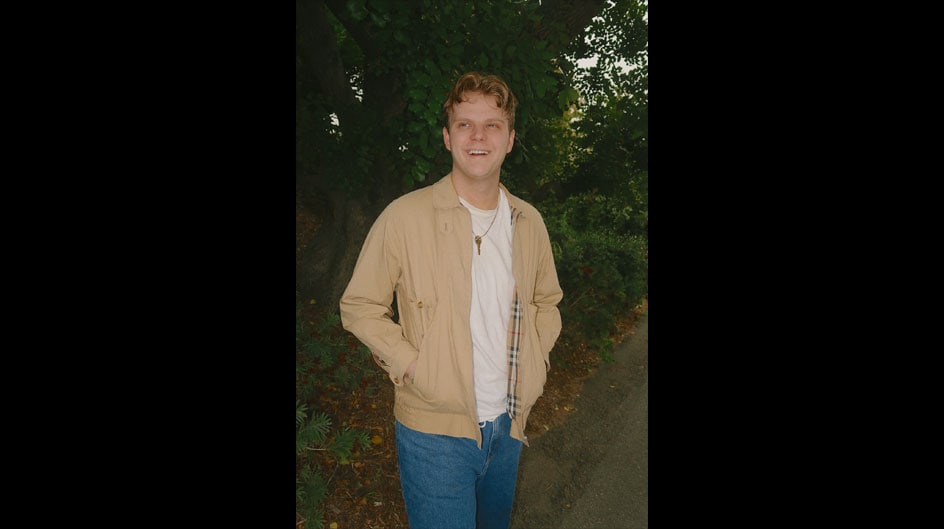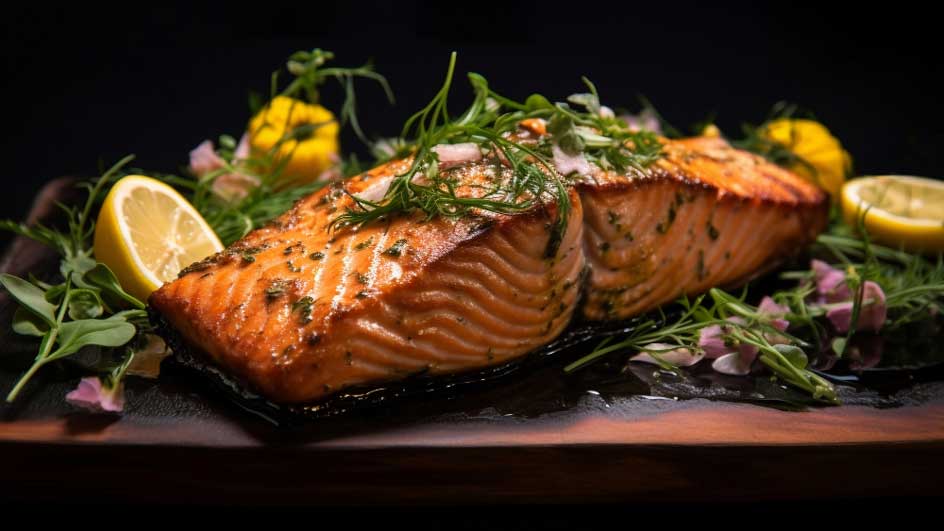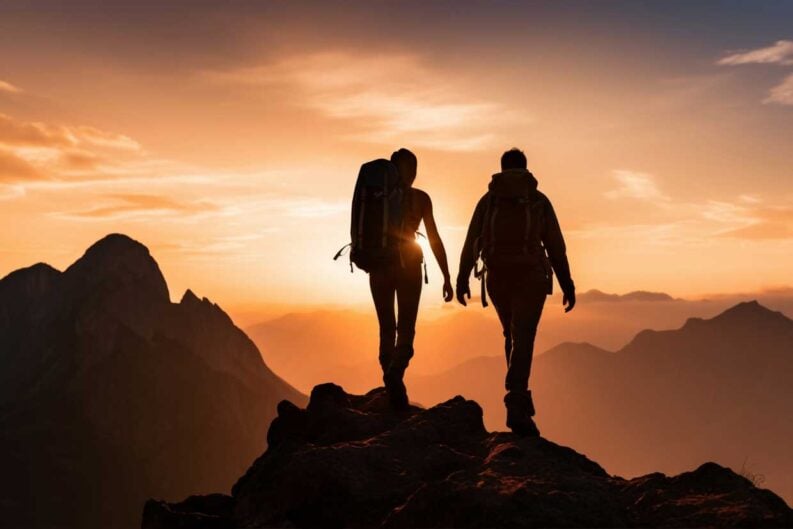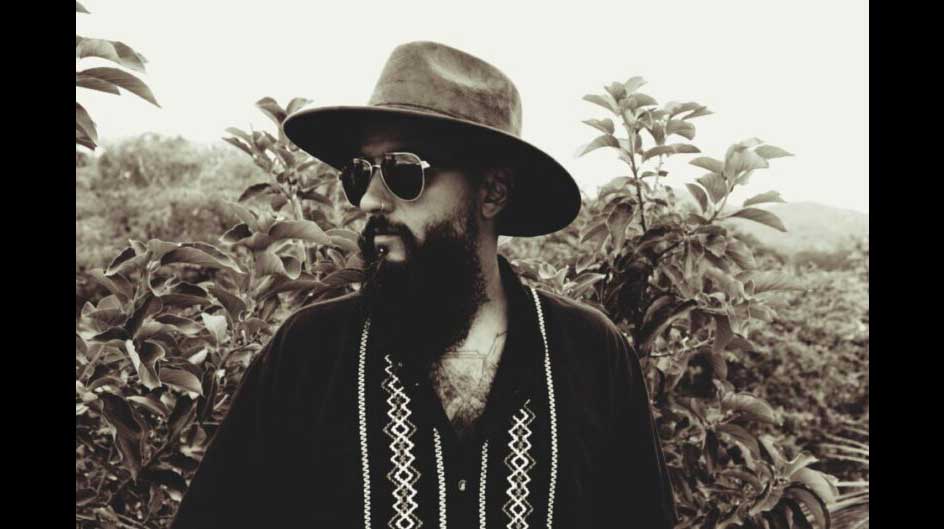In a masterful musical revelation, the esteemed Los Angeles-based ensemble, The Americans, unveils their intricate latest EP, “Strays,” transcending the conventional boundaries of their genre.
“Strays” stands as a remarkable showcase of the band’s prowess in redefining rock & roll through the lens of early folk and blues influences. Patrick Ferris (vocals/guitar), Zac Sokolow (guitar), and Jake Faulkner (bass) collaborate to deliver an album that navigates the sonic landscape between the likes of Bruce Springsteen and Nathaniel Rateliff.
Having garnered attention with their previous releases, “Stand True” (2022) and “I’ll Be Yours” (2017), The Americans continue to captivate audiences. Renowned producer T Bone Burnett hails them as “genius twenty-first-century musicians that are reinventing American heritage music for this century.
We had the honor of catching up with frontman Patrick Ferris, for an exclusive interview below.
“Strays” showcases a unique blend of musical styles, fusing early folk and blues with rock & roll. What inspired the band to explore this particular musical fusion?
We all came up playing pre-war blues and string band music—slide guitar, banjo, fiddle, etc. We don’t put as much of that in our music directly anymore, but we still chase after the feeling of those old recordings. Zac has been playing bluegrass and country with his dad since he was a kid. Jake and I started playing guitar around the same time. We were friends when we were little, and when we met back up in high school we were learning about all the same stuff—Dylan, Iggy Pop, the White Stripes, early blues. He was the only person my age who liked the same music I did.
“Strays” has been described as an emotionally charged album. How did the band approach infusing these emotions into the music and lyrics?
Well I think that’s the nature of the game, whoever you are. You encode these feelings and concepts into the language of music, and the listener decodes them in their own language. It’s what makes music feel so personal.
Your previous releases, “Stand True” and “I’ll Be Yours,” helped catapult the band into the spotlight. How has your musical journey evolved since then, and what sets “Strays” apart from your previous work?
I think the exciting part is that each release gets a little closer to what we sound like, a little more our own. I think this one is a step in the right direction.
The Americans have been praised by industry legends like T Bone Burnett and music journalist Greil Marcus. How does it feel to have received such acclaim from these influential figures?
It’s been encouraging. Writing music involves feeling your way in the dark a lot of the time. It can be lonely. Kind words from the right people can shine a light on that path.
The first single from “Strays,” “When You Get Back,” is an intimate and emotional song. Could you tell us more about the inspiration behind this track?
“When You Get Back” is about needing someone who doesn’t need you back, about being hopelessly committed to someone who doesn’t share that devotion. The first lines, “The world belongs around you / That’s something to belong to / You’ve got something missing in me” are about someone who’s already content with or without you. But the devotion remains, in the face of unlikely odds. So you double down.
“Land of the Free,” the second track on the EP, addresses the issue of homelessness in Los Angeles. What message or impact do you hope to convey through this song?
Jake and I grew up playing music with homeless street musicians in San Francisco. Homelessness is one of those things you get used to seeing around your city. You almost have to remind yourself how shocking it is. We’re just finishing a music video for that song, which we shot mostly on Skid Row in Los Angeles. A number of great songs about being homeless influenced that song: “Tramp on Your Street” by Billy Joe Shaver; “On The Nickel” by Tom Waits; “The Ghost of Tom Joad” by Bruce Springsteen; “He Was a Friend of Mine” by Bob Dylan; “The Ragpicker’s Dream” by Mark Knopfler.
“Kingdom,” the hard-hitting second single from the EP, examines the power of one-way desire. Can you share the backstory or inspiration for this track?
I spent a long time as a teenager devoted to someone without the courage to tell them. I suffered quietly. “Kingdom” is about that.
What is the songwriting process like for The Americans? You mentioned starting with something “minuscule and primitive.” Can you elaborate on how you develop your songs from such elements?
There’s a practical method of songwriting that involves sitting down with a theme, with a goal in mind, and writing around that theme. Country songs work that way, and pop songs too. I’m envious of that process. It requires a lot of skill and tenacity. Our method is more scattered and unpredictable—we pull together moments of music and language that gravitate toward us, then set about trying to discover what it could possibly be about. What kind of song is it? What does it say?
The Americans have an impressive array of musical instruments at their disposal, from banjo to upright bass. How do these diverse instruments contribute to the band’s unique sound?
We used to have a lot more of that in our music—banjo, mandolin, fiddle…. It comes from our roots. The goal is getting to a place where you sound less like your influences, but with songs that connect in the same way they do. Our records don’t have banjo or fiddle on them anymore, but we’re still chasing the feeling we get from that old music. That’s what we’re always working on.
Your live performances have been described as “straight up blue-collar rock and roll.” How does the energy of your live shows compare to the studio recordings, and what can audiences expect from your upcoming live performances?
Some of our songs are slow and lyrical, so that’s one aspect of the show. But we spent years playing early rock & roll and rockabilly, so we bring that intensity to our louder, faster songs. Playing live gives the songs a chance to evolve and settle into themselves. It’s easy to look back at studio recordings like they’re a little foreign compared to how the songs have been sounding live.
